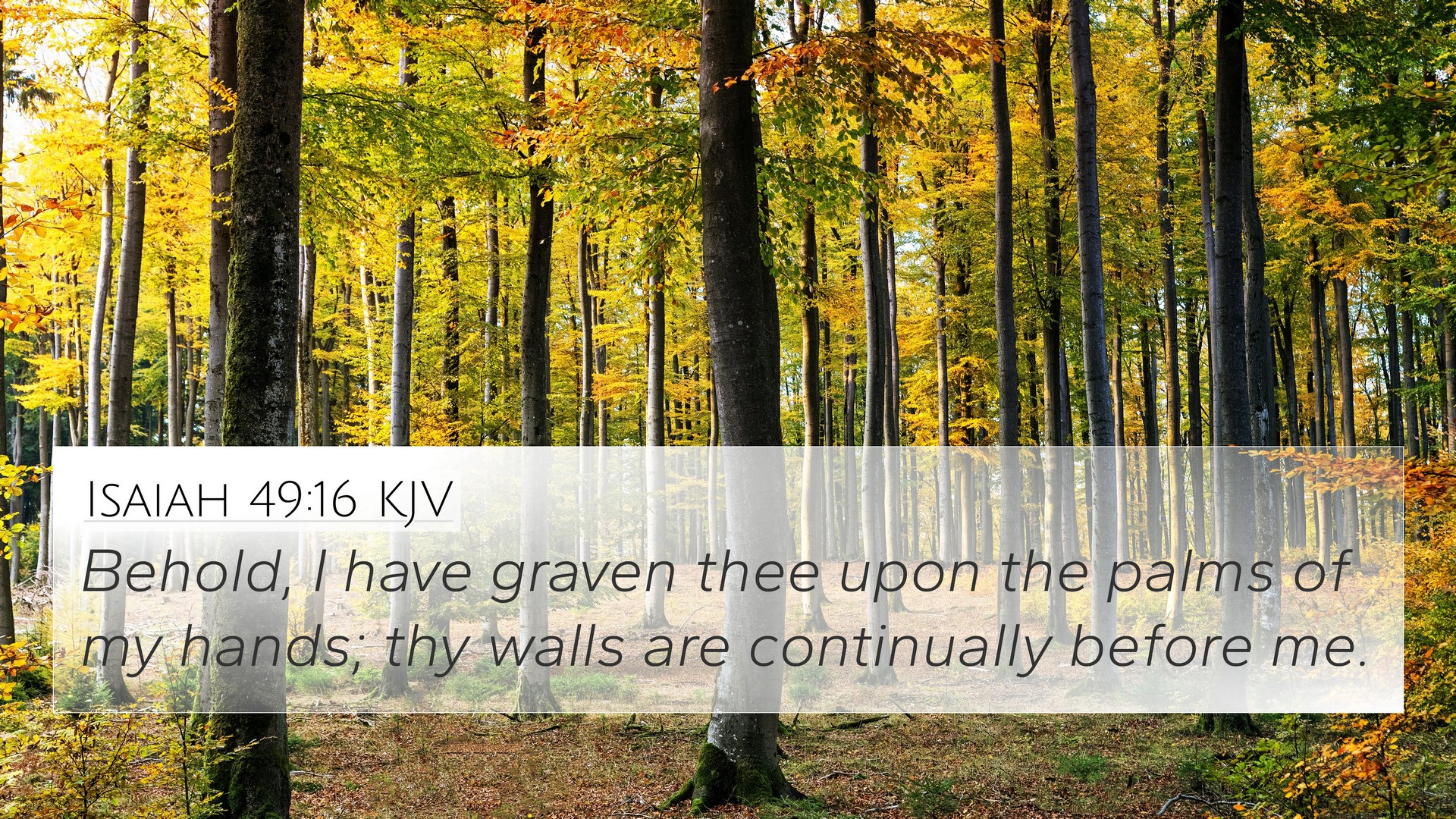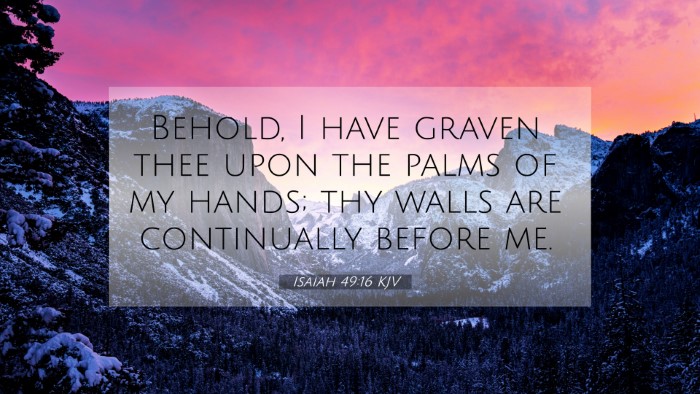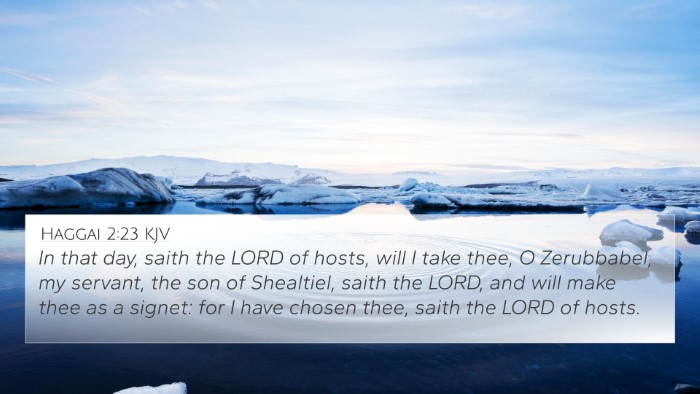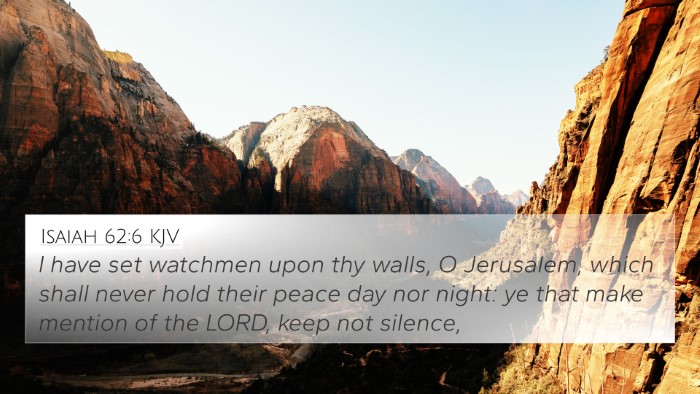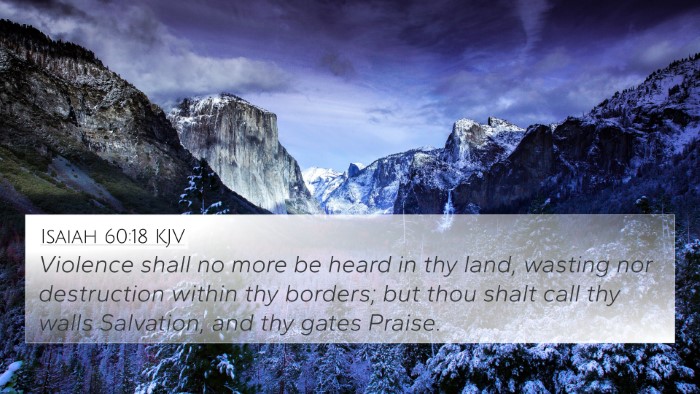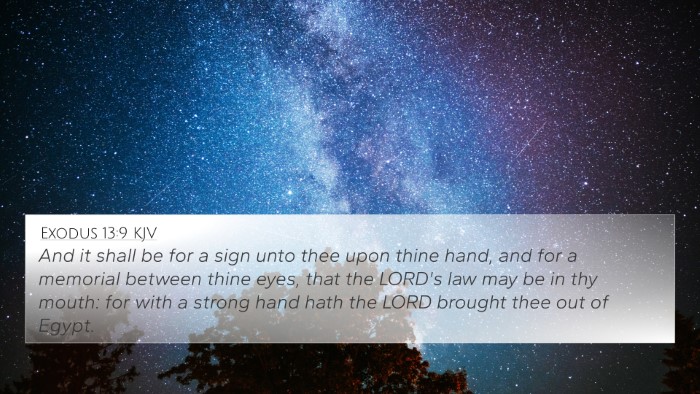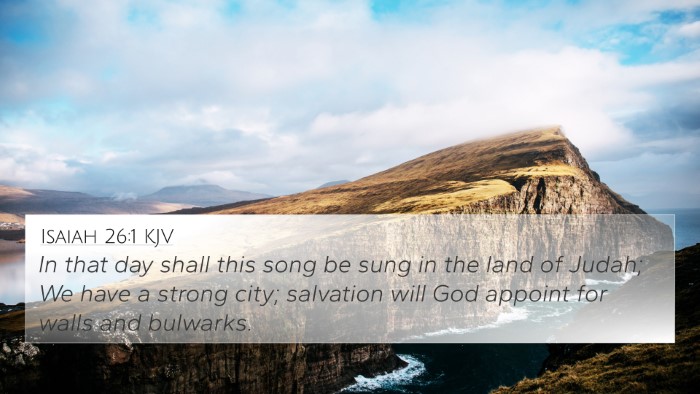Understanding Isaiah 49:16
Isaiah 49:16 is a profound verse that conveys God's unwavering commitment and love for His people. The verse states:
"Behold, I have engraved you on the palms of my hands; your walls are continually before me."
This verse reflects the deep relationship between God and Israel, illustrating both divine care and protection. Let us delve into the insights provided by eminent public domain commentators such as Matthew Henry, Albert Barnes, and Adam Clarke to explore its theological significance.
Context and Thematic Interpretation
Isaiah, communicating God's message, underscores that God's remembrance of His people is not superficial but deeply engraved. This metaphor of engraving indicates that God's commitment is permanent.
The use of the phrase "the palms of my hands" suggests not only a physical connection but also an emotional and spiritual connection, illustrating that God carries His people with Him in all His actions.
Commentary Insights
- Matthew Henry explains that the "engraving" signifies a lasting impression, indicating that God's concern and ownership of His people are indelible. He emphasizes the personal nature of God's relationship with His people.
- Albert Barnes highlights that the "walls" refer metaphorically to the people and their circumstances. Even in times of trial, God has them in His thoughts and is actively involved in their protection and well-being.
- Adam Clarke elaborates on the "walls" as a representation of the cities of Israel, symbolizing safety and refuge, further indicating God's active engagement in safeguarding His people.
Cross-Referencing with Other Scriptures
This verse has multiple connections and parallels within the Bible that enhance our understanding of its message. Here are some significant cross-references:
- Psalm 139:17-18 - These verses express the intimate thoughts God has toward His creation, affirming His constant awareness and love.
- John 10:28-29 - Jesus speaks of eternal security, echoing the theme of God’s unbreakable bond with those He loves.
- Isaiah 44:5 - Here, God calls His people by name, depicting them as His own, reinforcing the theme of belonging.
- Romans 8:38-39 - Paul asserts that nothing can separate us from the love of God, aligning with the commitment expressed in Isaiah 49:16.
- Zechariah 2:8 - This verse emphasizes God's protection over Jerusalem, showing His ownership and care similar to that of Isaiah 49:16.
- Matthew 6:26 - Jesus illustrates God’s care for His creations, encouraging trust in His provision and protection.
- Revelation 7:3 - The sealing of God’s servants reinforces God's protective claims upon His people.
Applications and Themes
Isaiah 49:16 serves as a reminder of God’s unconditional love and care. Here are some themes that emerge:
- The Assurance of God’s Presence: No matter the circumstances, God's presence is promised to His people.
- Identity in Christ: Engraving suggests that believers are permanently marked as God's own, establishing our identity in Him.
- Divine Protection: The imagery of walls signifies safety and security under God’s care.
- Relationship with God: The verse underscores the personal relationship believers have with God, symbolizing intimacy and connection.
Further Cross-Referencing and Study
For those interested in deeper Bible study and exploration, here are tools and methods for effective cross-referencing:
- Utilize a Bible concordance to track themes and concepts across different texts.
- Explore a Bible cross-reference guide to aid in identifying scripture connections.
- Employ cross-referencing Bible study methods that highlight thematic links between the Old and New Testaments.
- Engage in cross-reference Bible study to uncover related verses that enhance understanding.
Conclusion
Isaiah 49:16 powerfully illustrates God's eternal commitment to His people. Through the insights of esteemed commentators and scriptural connections, we see a complete picture of divine love, safety, and identity. This verse, along with its rich cross-references, provides believers with a profound understanding of their relationship with God.
